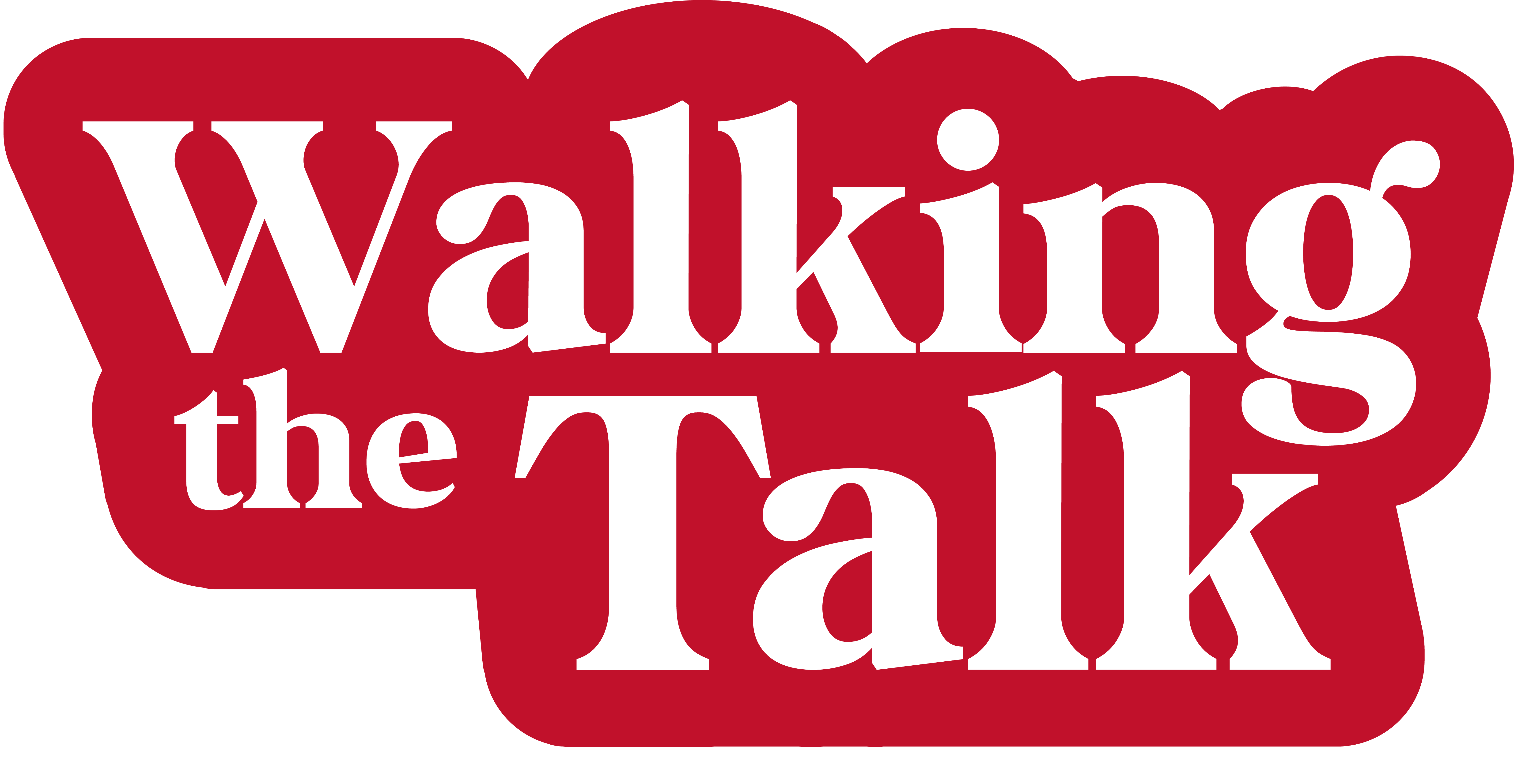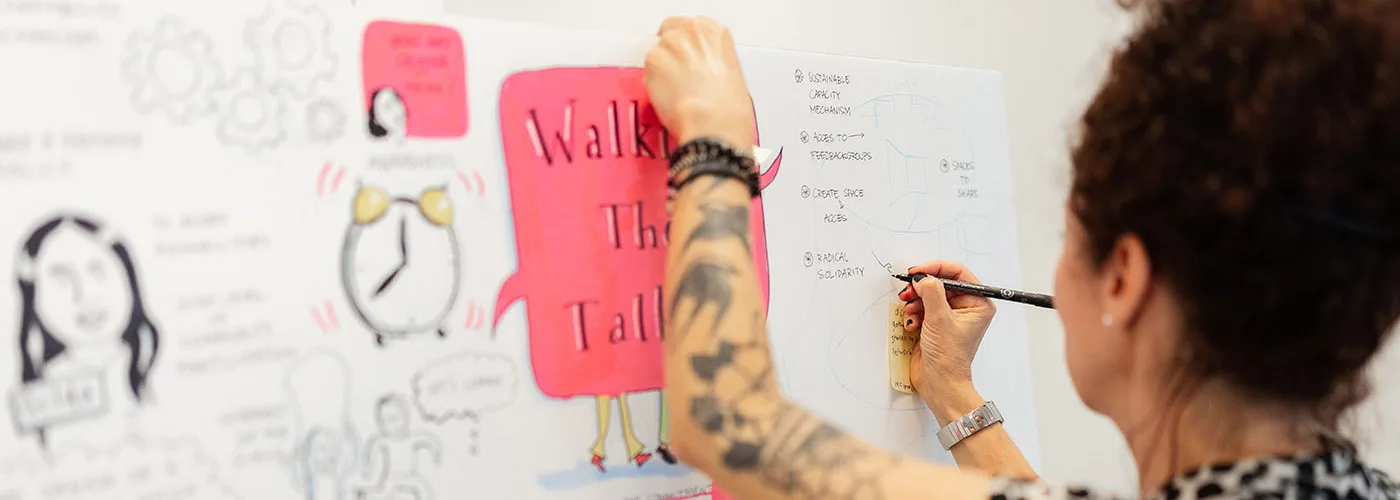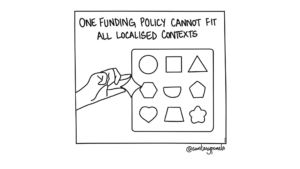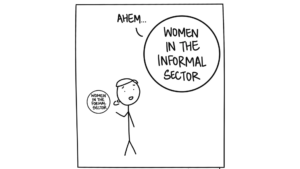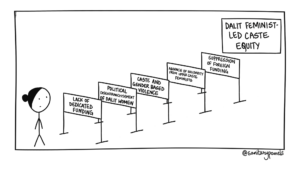Key information
Research track: Track 4 – Changing the Story
Countries: India, Kenya and Bangladesh
Researchers: Megha Kashyap, Antonia Wanjika and Ipsita Divedie
Summary
This project arises from our experiences in feminist spaces, revealing the colonial power dynamics in development aid. As young feminists working on women’s rights, we’ve seen how funding from Global North entities like USAID and the European Commission often imposes donor priorities that conflict with local contexts. Despite some countries having feminist foreign policies, these funding practices still perpetuate material and structural colonialism in the Global South. To genuinely decolonize international development, we must continuously interrogate power dynamics: who holds power, where it lies, and how it is sustained.
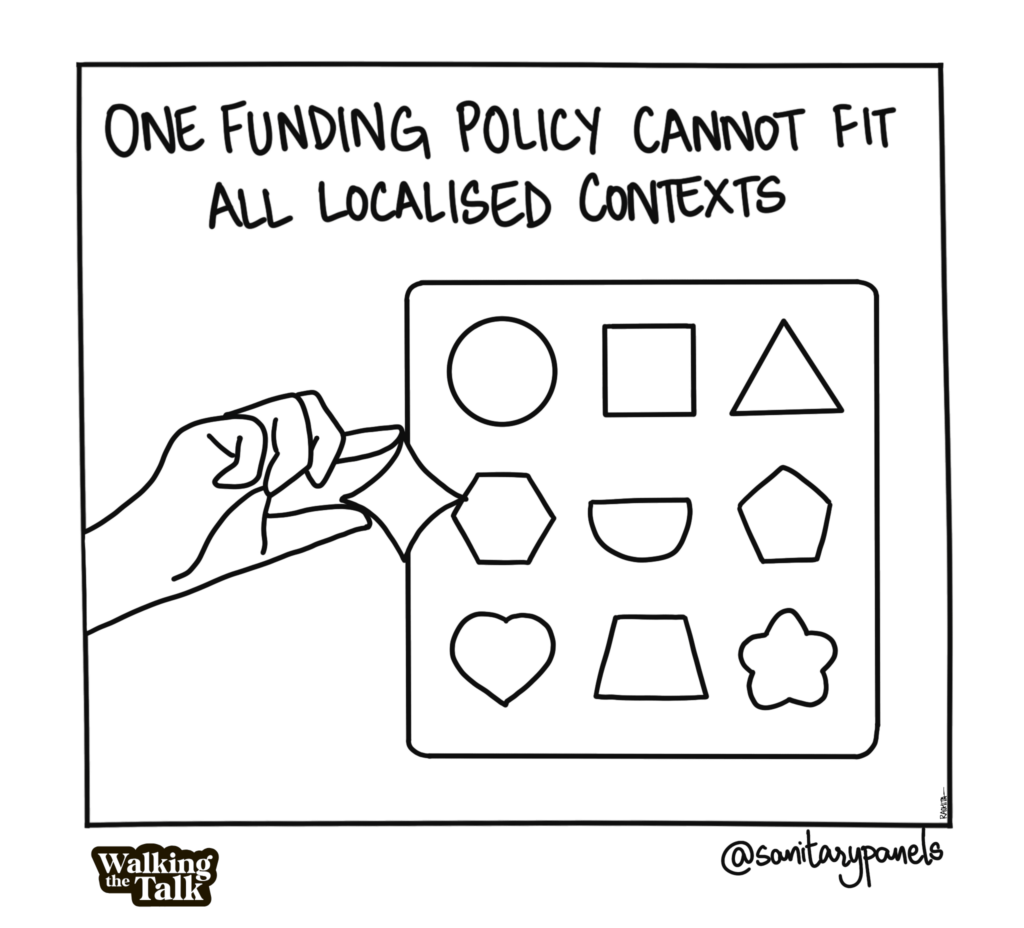
Advocacy Asks
Primary research in 3 countries to inform the advocacy asks. Our key learning questions are:
- How does coloniality show up in ODA funding for development in K, I &B especially focussing on countries that have adopted FFP or Gender Equality in their FPs? What are some material and structural colonialities that shape FP for development funding?
- What are some possible impacts it is causing to Feminist Movements in these countries?
- How can we center the voices of the marginalized with the intersections of caste, gender, class, race, and sexuality in analyzing funding policies for development in K, I &B to inform a ‘decolonial framework’ for FPs?
Methodology
This research will adopt a qualitative approach. The methods will include interviews, and document analysis to explore the learning questions. A comparative case study method for each country will be developed as part of the analysis. This will allow for an in-depth examination of different countries’ experiences using the conceptual frameworks mentioned above.
